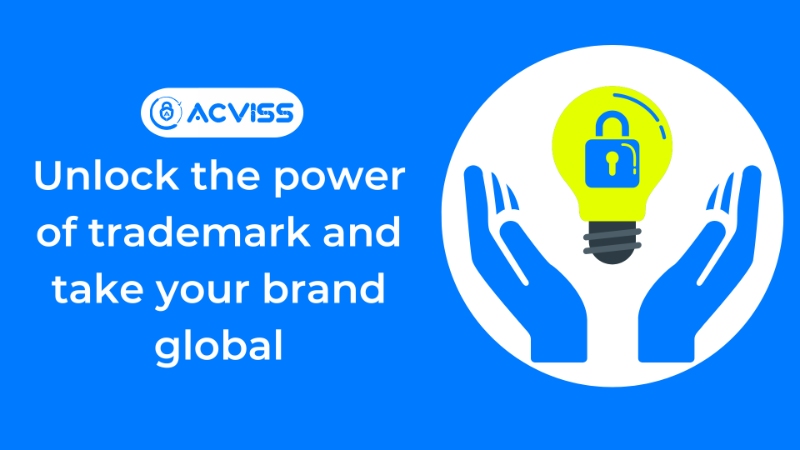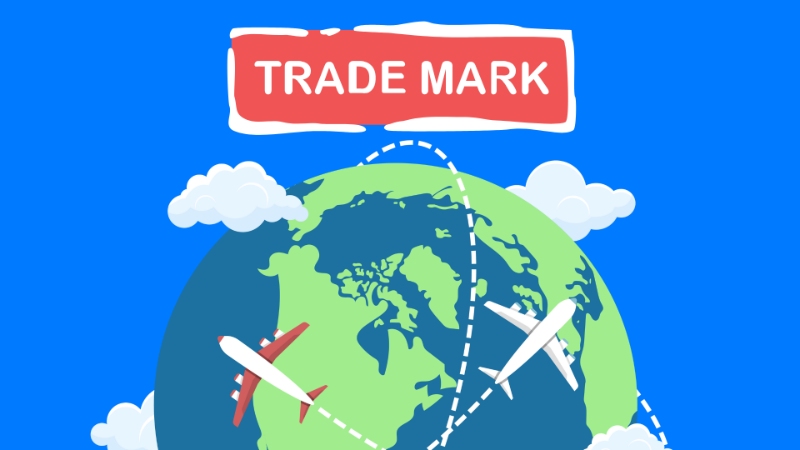Unlock the Power of Trademark and Take Your Brand Global

When it comes to selling products and services overseas, having strong trademark protection is key. A trademark is a unique logo, word, or phrase used to identify a brand and distinguish it from other products and services. As a brand expands beyond its home market, so too does the risk of counterfeiters taking advantage of the brand's success by creating cheap knockoffs. By having trademark protection in place, brands can protect their intellectual property and prevent the sale of counterfeit products that could damage their reputation. With a market that is plagued by counterfeits, it becomes a necessity for brands to take enough measures to protect themselves.
What is a Trademark?
Trademark is the best tool a brand can use to improve customer engagement. In a brand-centric market, trademarks help the brand to differentiate from its competitors. It acts as a PR service, which builds a brand image and reputation among customers. A trademark is a recognizable sign, design, or expression that identifies products or services of a particular source from those of others. They can be words, logos, symbols, slogans, and any combination of these elements that are used to identify the source of goods and services. This helps to market the brands better, which will help generate new audiences globally. Trademarks are legally protected in most countries and businesses need to register their trademarks to protect them from being used without authorization.
Difference between Trademark and Copyright
Trademark protects the logo, product design, slogan, brand name and product name of a company. Copyright, on the other hand, protects any creative or artistic work; books, paintings, plays, songs, scripts etc. Registering a copyright is not necessary as the author is given the right when the creation is born. However, a trademark must be registered to have a legal foundation.
What are the Benefits of Having a Trademark?
The counterfeit market has scaled to a whopping $4 trillion dollars and brands across the world are suffering. Having a trademark is a critical part of protecting a brand's intellectual property. It grants the exclusive right to use a specific logo, word or phrase that is associated with a product or service. By registering a trademark, businesses have the power to stop others from using similar marks that could cause confusion and harm the value of their brand.
Having a trademark gives businesses the ability to maintain control over their products and services, as well as preserve their brand integrity. A trademark allows businesses to build customer loyalty, create trust and develop goodwill and reputation.
Must Read: Importance of Trademark Monitoring for Brand Protection.
How do trademarks protect brands overseas?
Counterfeiting is a huge problem for businesses as it erodes their profits and reputation. It’s estimated that counterfeit goods account for 5-7% of global trade. Without adequate protection, businesses are vulnerable to losing money to unscrupulous counterfeiters.
Having a trademark registration overseas can help to protect a brand from being counterfeited by providing a legal deterrent. It also gives the brand owner the right to sue anyone who infringes upon the trademark. If a counterfeiter has copied the trademark in such a way that it can be confused with the original, then the brand owner can obtain an injunction preventing further use of the infringing mark.

Anticounterfeiting measures can also help to protect brands overseas. This includes things like product serialization and tracking, increased surveillance, and working with local law enforcement to crack down on counterfeiters. This can all help to ensure that customers receive genuine goods and that counterfeiting is deterred.
In the broader sense, trademarks are an invaluable tool for protecting brands overseas. They provide legal protection against counterfeiting, as well as help to create brand recognition and loyalty.
How to Get Started with Trademarks
There are many steps involved in the process of trademarking, but it all starts with conducting a search to make sure no other brands have already registered the same name.
Once you've established that your brand name is unique, you can proceed with filing a Form TM-A under the Indian Trademark Act, 2016. This process can take several months or more, depending on how quickly you provide the necessary paperwork and whether there are any issues during the review process.
Once your trademark is approved, it's important to monitor its use and enforce your rights if necessary. It's also important to remember that trademarks are only valid in certain geographic areas. If you intend to market your products overseas, you should consider registering additional marks in other countries as well.
For that matter, you have to register under the Madrid protocol. This international registration helps your brand hold trademark rights in multiple countries. International Trademark Rules(ITR) set by the World Intellectual Property Organization(WIPO) ensures the protection of your brand in the overseas market grounds.
In sum, registering your trademark is an important step in protecting your brand and helping it grow. Make sure to do your research and enlist the help of an experienced agent if necessary to ensure that you're getting the most out of your trademark protection. To ensure safety to the fullest, businesses should look into registering them overseas and employ anti-counterfeiting measures where possible.
